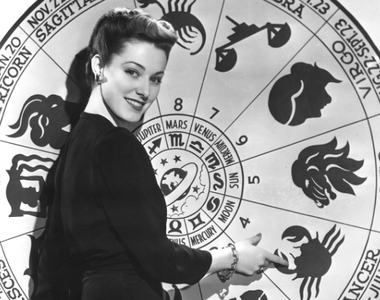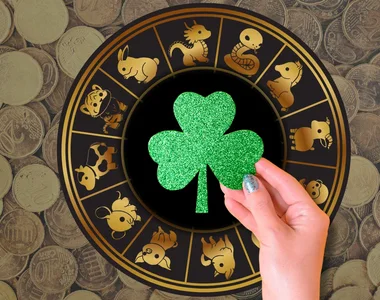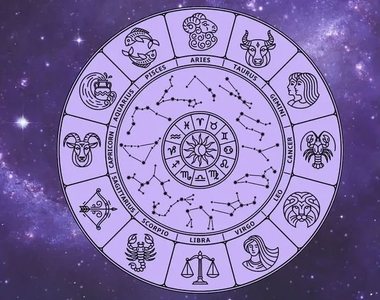
Bëhuni gati për një frymëmarrje të çliruar! Sezoni i Demi ka filluar dhe bashkë me të edhe ndikimi në 12 shenjat e horoskopit. Si do të ndikojë ky ndryshim në secilën shenjë?
Ja surprizat që kanë rezervuar yjet për ju!
Dashi
Triumfi do të jetë i kënaqshëm pas një periudhe pengesash. Kjo periudhë sjell fitore, vetëm kini kujdes që të mos bëheni shumë arrogantë për këtë. Aplikoni njohuritë që keni fituar gjatë kohëve tuaja të vështira dhe përpiquni të jeni një person më i/e sjellshëm/me dhe më i/e dhembshur.
Demi
Të ndihesh jashtë zonës së rehatisë mund të jetë në fakt një gjë e mirë. Ne mund të rritemi vetëm duke vrapuar pas gjërave, planeve apo projekteve. Por, mund të përballeni edhe me sfida. Gjatë këtij procesi dhe ndikimit veçanërisht të Demit këtë sezon, do të jeni të lumtur të mësoni se po rriteni në çdo drejtim.
Binjakët
Lërini kujtimet që qëndrojnë thellë në zemrën tuaj të dalin në sipërfaqe. Duke përqafuar pak ndjeshmëri dhe emocione të bukura, do të mund të lidheni me veten dhe të orientoheni drejt rrugës që përputhet më shumë me shpirtin tuaj.
Gaforrja
Mos harroni se ju jeni një student i përjetshëm dhe jo një mësues. Ju keni përvojë jetësore, por gjithmonë ka diçka të re për të mësuar, kështu që lejoni veten të mësoheni me ndryshimet. Bëhuni gati të merrni leksione të reja dhe të dobishme.
Luani
Nëse e doni punën tuaj, por synoni një rritje në aspektin profesional, por edhe atë financiar, është e rëndësishme të ndryshoni rregullat e lojës përpara se të trokisni në zyrën e shefit/es. Sigurohuni që jeni plotësisht të përkushtuar për të qëndruar në pozicionin aktual dhe që jeni gati për ndryshime.
Virgjëresha
A keni ëndërruar ndonjëherë për një jetë ndryshe? Mund të duket si një ëndërr e largët, por ndryshimet mund të kenë një efekt domino. Hidhni hapa të vegjël, nisur nga entuziazmi. Nëse jeni në rregull me këtë standard dhe nivel loje, thjesht ecni përpara.
Peshorja
Është koha të përballeni me çështjet që keni pretenduar se nuk ekzistojnë. Nëse nuk e bëni, njerëzit do vazhdojnë t’ju shkaktojnë zhgënjim. Kjo është koha për të hedhur hapin e duhur, në vend që ta shmangni këtë.
Akrepi
Jeni në kërkim të një bashkëpunëtori? Dikush që mund t'ju ndihmojë të dalloni me idetë tuaja dhe të jetë po kaq i/e përkushtuar sa ju. Shpesh, partneri/ja ideale mund të jetë dikush që tashmë e njihni dhe i besoni. Ndërtimi i një biznesi ose një projekti të ri me individë të besueshëm mund të sjellë shumë fitime në aspektin finaciar dhe jo vetëm.
Shigjetari
Ju ndoshta po zbuloni se keni ndërtuar një raport të fortë me kolegët e punës. Pse të mos organizoni një festë ose darkë në shtëpinë tuaj? Kjo, jo vetëm do të ndihmojë në thyerjen e monotonisë së ambientit të zyrës, por gjithashtu do të krijojë një atmosferë më pozitive dhe miqësore mes kolegëve.
Bricjapi
Ndërmerrni një hap besimi dhe shprehni atë që keni në zemrën tuaj. Do të jeni pak nervozë, por të flisni sinqerisht është mënyra më e mirë për të thelluar lidhjen tuaj ekzistuese ose për të rifilluar një të re.
Ujori
Besoni në veten tuaj, edhe kur ju duket sikur askush tjetër nuk e bën. Zotërimi i fuqisë suaj do të jetë kyç në ditët në vijim. Ju do të jeni në gjendje të zhbllokoni aspekte të vetes që i mbani të ndrydhura. Do të ndiheni më të fortë dhe të aftë për të marrë përsipër gjithçka që ju vjen, pa u shqetësuar për pasojat.
Peshqit
Lista juaj e detyrave nuk mbaron kurrë. Ndonëse mund t'ju duket e rëndësishme të realizoni gjithçka, e vërteta është një dhe e vetme: Thjesht nuk mundeni dot! Lista do të vazhdojë të zgjatet, ndaj kjo është arsyeja pse nuk mund t'i vendosni detyrimet përpara shëndetit tuaj. Të keni pak kohë për veten është thelbësore.
Burimi: Today
Artikuj të sugjeruar:







